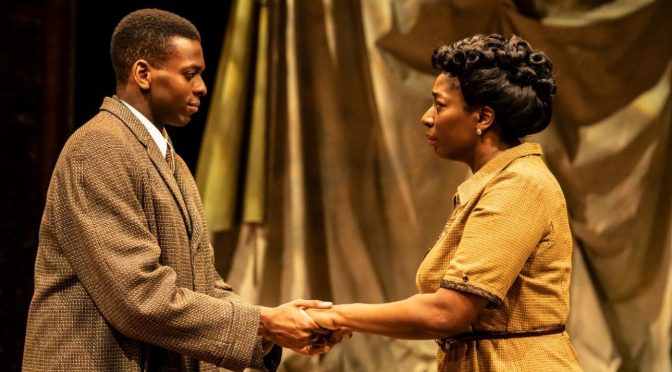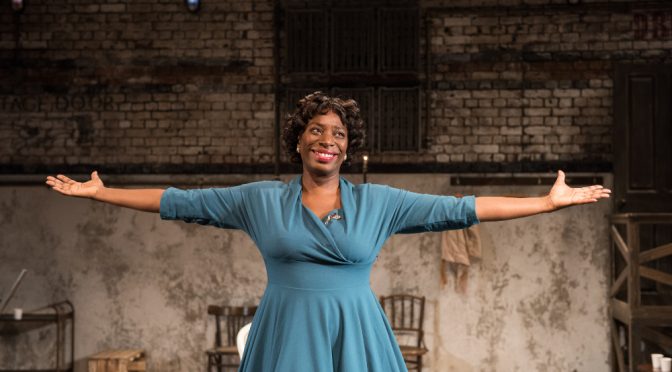Alice Childress’ 1955 play takes us behind the scenes of a Broadway show about racism in the American South. Focusing on the theatre, Trouble In Mind gets to the heart of issues about representation that are topical and important. And it does so with passion, intelligence and wit.
Childress’ anger isn’t hard to spot. There are difficult moments as the cast explores the play it is rehearsing. The story of one actor, who witnessed a lynching as a child, is incredibly powerful (Cyril Nri does this pivotal scene justice). Frustration with the play within the play – its skewered view of African American life – is compounded by the aggressions the performers face as they work with white colleagues, for a white audience.
The debate is nuanced even if Childress’ opinions are clear. Care is taken to make sure the show’s director character is no straw man. Objectionable, insufferable even, and a figure of fun, the performance from Rory Keenan makes sure we still take what he has to say seriously. Arguments about the compromises supposedly needed to get the show on stage are given space.
It is the humour in the show that makes it memorable. Trouble in Mind is a very funny play. All the hypocrisy could be painful but is brilliantly handled by both Childress and the production’s director Nancy Medina. Asides, verbal and physical, get laughs as well as provoking thought and showing tension. Naana Agyei-Ampadu’s performance as the formidable Millie is magnificent – a great character, superbly rendered.
Tanya Moodie’s performance in the lead role of Wiletta deserves the greatest praise. Having excelled in the role before, Moodie lives as much as performs the part. That’s an amazing achievement, given how the character flips from being a duplicitous old theatre hand to an exposed novice who wants to really act and do “something grand”.
The relationship with old and new colleagues (strong performances from Gary Lilburn and Daniel Adeosun, pictured) is a joy to watch. Wiletta is warm but steely, open yet suspicious, from one moment to the next. Moodie’s performance is one of the best I’ve seen – anytime and anywhere – and is a five-star experience that is not to be missed.
Until 29 January 2022
Photo by Johan Persson


